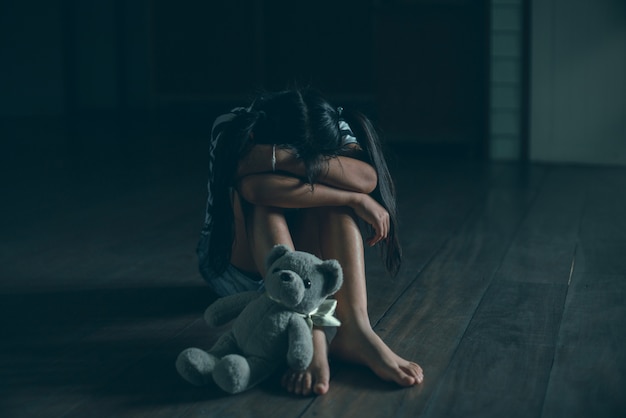The importance of detecting and treating depression and anxiety in our children
Depression and anxiety are two common disorders that can affect children and adolescents, and it is crucial that parents and caregivers are attentive to possible symptoms and act in time to provide them with the necessary support.
1/14/20243 min read


Mental health is a fundamental aspect in the development and well-being of our children. Depression and anxiety are two common disorders that can affect children and adolescents, and it is crucial that parents and caregivers are attentive to possible symptoms and act in time to provide them with the necessary support.
What is depression?
Depression is a mood disorder characterized by deep sadness, loss of interest in previously pleasurable activities, changes in appetite and sleep, lack of energy, and difficulty concentrating. In children and adolescents, these symptoms may manifest differently than they do in adults, so it is important to be alert.
Some signs of depression in children may include irritability, changes in school performance, social withdrawal, frequent complaints of physical discomfort such as headaches or stomachaches, and expressions of hopelessness or suicidal thoughts. If we observe any of these symptoms in our children, it is essential to seek professional help.
What is anxiety?
Anxiety is another common disorder in childhood and adolescence, and is characterized by a persistent feeling of worry, fear or nervousness. Children with anxiety may have difficulty controlling their worries, have physical symptoms such as headaches or stomachaches, have trouble falling or staying asleep, and avoid situations that make them anxious.
It is important to keep in mind that it is normal for children to feel anxious in certain situations, such as before an exam or a public presentation. However, when this anxiety becomes excessive and affects your daily functioning, it is necessary to seek professional help.
How can we detect depression and anxiety in our children?
As parents and caregivers, it is essential to be alert to possible signs of depression and anxiety in our children. Some indicators may be:
Mood changes, such as persistent sadness or irritability.
Sleep problems, either difficulty falling asleep or waking up frequently during the night.
Changes in appetite, such as significant weight loss or gain.
Problems in school performance or lack of interest in activities they previously enjoyed.
Social isolation and avoidance of situations that generate anxiety.
Frequent complaints of physical discomfort, such as headaches or stomachaches, without an apparent medical cause.
If we see any of these signs in our children, it is important to talk to them and seek help from a mental health professional. A psychologist or psychiatrist specialized in children and adolescents will be able to evaluate the situation and provide appropriate treatment.
How can we act against our children's depression and anxiety?
Once we have detected depression or anxiety in our children, it is essential to act appropriately and provide them with the necessary support. Some strategies we can follow include:
Open communication: It is important to talk to our children in an understanding and non-judgmental way. Listening to their concerns and emotions can help them feel understood and supported.
Seek professional help: A psychologist or psychiatrist specialized in children and adolescents will be able to evaluate the situation and provide appropriate treatment. It is important to follow the professional's recommendations and attend scheduled therapeutic sessions.
Promote healthy habits: A balanced diet, regular exercise and good rest are essential for mental well-being. Encouraging these habits in our children can help them better manage depression and anxiety.
Create a supportive environment: Providing a safe and loving environment at home can help our children cope with emotional challenges. Showing them our unconditional love and support is essential.
Educate ourselves about depression and anxiety: Knowing more about these disorders and how they affect our children will allow us to better understand their experiences and provide them with appropriate help.
Remember that depression and anxiety in children and adolescents should not be ignored or minimized. Acting in time and seeking the necessary professional help is essential for your long-term well-being. Our children deserve to receive the support and care they need to overcome these challenges and develop healthily.
